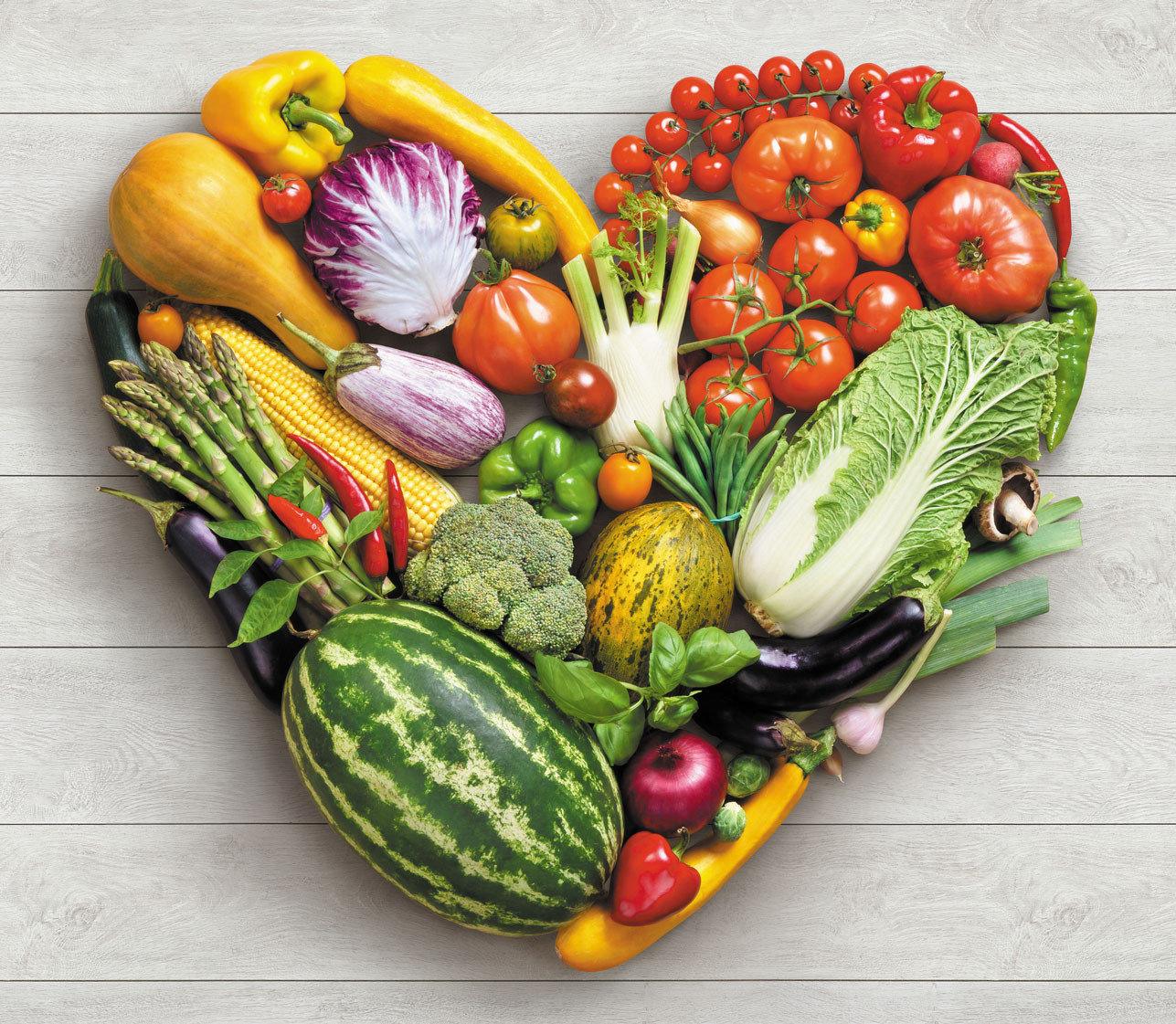Are Sugar Free Sauces Actually Healthy? A Breakdown for Plant-Based Eaters
Are Sugar Free Sauces Actually Healthy? A Breakdown for Plant-Based Eaters
Blog Article
All Concerning Healthy Food: Advantages of Embracing Plant Based Alternatives
The discussion bordering plant-based diet plans has actually gained substantial attention in the last few years. Several people are discovering the possible wellness advantages, dietary benefits, and ecological impacts connected with these nutritional choices. As people end up being much more familiar with their food's impact on health and sustainability, questions emerge about the practicalities of taking on such a way of life. What specific changes can one expect, and just how might these selections reshape not just individual health but also the world's future?
Understanding Plant-Based Diet Regimens
Although lots of people link plant-based diets mainly with vegetarianism or veganism, these diets can encompass a vast array of consuming patterns that prioritize whole, minimally refined plant foods. Such diet plans typically include fruits, veggies, whole grains, vegetables, nuts, and seeds, while getting rid of or limiting pet products. This adaptability allows individuals to tailor their dietary selections according to nutritional demands and individual preferences. Some may embrace a primarily plant-based diet plan while still occasionally consuming meat or dairy products, commonly described as a flexitarian strategy. The focus stays on including even more plant foods, which can bring about a diverse selection of tastes and dishes. Recognizing these various analyses of plant-based eating is important for valuing its accessibility and allure in contemporary food society.
Health Benefits of Plant-Based Foods
The health and wellness benefits of plant-based foods are significant, providing a nutrient density advantage that sustains overall health. Research study indicates that these foods can boost heart wellness and play a vital role in effective weight administration. By including extra plant-based options, individuals may boost their nutritional options and promote long-lasting wellness.
Nutrient Thickness Advantage
Nutrient density plays a vital function in the wellness advantages of plant-based foods, making them a compelling choice for those seeking a well balanced diet plan. Plant-based foods, such as fruits, veggies, beans, nuts, and whole grains, are usually abundant in necessary vitamins, minerals, and anti-oxidants while being reduced in calories. This high nutrient density enables individuals to consume fewer calories while still fulfilling their dietary needs. In addition, these foods are packed with nutritional fiber, advertising digestion health and assisting in weight management. By incorporating nutrient-dense plant-based options, consumers can boost their general wellness, sustain their immune systems, and minimize the threat of chronic diseases. Inevitably, the nutrient thickness of plant-based foods underscores their importance in a health-conscious way of living.
Heart Health Renovation

Weight Administration Assistance
Along with advertising heart wellness, a plant-based diet plan can significantly aid in weight management. This nutritional approach stresses whole foods such as fruits, veggies, vegetables, nuts, and entire grains, which are typically lower in calories and greater in fiber compared to animal-based products. The high fiber content aids increase satiety, lowering total calorie intake. Plant-based diet plans are frequently abundant in crucial nutrients while reduced in undesirable fats, making it simpler to maintain a healthy and balanced weight. Research study suggests that people that take on a plant-based lifestyle often tend to have lower body mass indexes (BMIs) and experience even more successful weight management contrasted to those that eat meat-heavy diets. Accepting plant-based options is a calculated selection for reliable weight administration.
Nutritional Worth of Plant-Based Ingredients
Plant-based components are abundant in important nutrients, offering a varied variety of vitamins, minerals, and anti-oxidants that contribute to overall wellness. A comparison of healthy protein resources exposes that while animal items are frequently deemed remarkable, lots of plant-based options offer appropriate healthy protein and other advantageous compounds. Comprehending the dietary value of these ingredients can help individuals make educated nutritional selections.
Necessary Nutrients in Plants
Nutrient-rich components discovered in plants use a diverse selection of necessary nutrients that contribute substantially to overall wellness. These active ingredients are abundant in vitamins A, C, and K, which sustain immune function, vision, and blood clotting, respectively. Additionally, plants supply crucial minerals such as calcium, potassium, and magnesium, essential for heart health, muscular tissue function, and bone stamina. The existence of fiber in plant-based foods aids digestion and advertises a healthy digestive tract microbiome. Anti-oxidants, located perfectly in veggies and fruits, help battle oxidative stress and decrease inflammation. Additionally, several plant foods are low in calories yet high in nutrients, making them an exceptional selection for those looking for to preserve a healthy weight while ensuring excellent nutrient consumption.
Contrasting Healthy Protein Resources
Healthy protein sources vary significantly in their nutritional accounts, with plant-based active ingredients offering distinct advantages. Unlike pet healthy proteins, which commonly consist of hydrogenated fats and cholesterol, plant healthy proteins tend to be lower in these harmful elements. Legumes, nuts, seeds, and whole grains are rich in important amino acids, fiber, vitamins, and minerals. As an example, lentils provide high protein web content along with considerable iron and folate, while quinoa is a full healthy protein, using all 9 necessary amino acids. In addition, plant-based healthy proteins are typically accompanied by anti-oxidants and phytochemicals that sustain general wellness. The change to plant-based healthy protein resources not just improves dietary intake yet likewise lines up with lasting nutritional techniques, lowering ecological effect and promoting long-lasting health and wellness advantages.
Ecological Influence of Plant-Based Eating
As recognition of environment adjustment expands, numerous individuals are checking out sustainable dietary selections that can significantly lessen their environmental footprint. Plant-based eating has become a significant factor to reducing greenhouse gas exhausts, which are mainly linked with livestock manufacturing. The farming of fruits, vegetables, grains, and veggies typically calls for less sources, such as water and land, contrasted to animal farming. Furthermore, plant-based diet plans can cause decreased deforestation, as much less land is needed for grazing animals or growing animal feed. By moving in the direction go to these guys of plant-based choices, customers can support biodiversity and promote much healthier ecosystems. In general, embracing plant-based consuming not only benefits individual wellness yet likewise represents a vital step toward ecological sustainability and conservation efforts.
Overcoming Common Misconceptions
While several people acknowledge the advantages of a plant-based diet regimen, several false impressions commonly discourage them from fully accepting this way of living. An usual belief is that plant-based diet regimens do not have adequate protein; however, many plant sources, such as beans, nuts, and tofu, give adequate healthy protein. In addition, some assume that this diet is costly, when in reality, staples like beans, rice, and seasonal vegetables can be quite affordable. One more misconception is that plant-based eating is overly limiting, whereas it really uses a diverse array of foods and flavors. Numerous fret that a plant-based diet plan might lead to deficiencies, yet with correct preparation, people can acquire all necessary nutrients, including vitamins and minerals, while appreciating a vast variety of tasty dishes. Broad Tips for Transitioning to a Plant-Based Way of life
Making the shift to a plant-based way of life can be an enriching experience, though it typically needs some support to browse the initial modifications. People are urged to start progressively, incorporating more fruits, veggies, beans, and entire grains right into their meals while minimizing meat and milk usage. Meal planning is crucial; preparing an once a week food selection can help reduce the change and avoid final unhealthy selections. Discovering cooking techniques and new recipes can also enhance the experience and maintain excitement regarding plant-based consuming. In addition, signing up with assistance teams or neighborhoods can offer motivation and share useful tips. Staying notified about nutrition warranties balanced dishes, avoiding deficiencies while fostering a healthy, enjoyable plant-based way of life.

Delicious Plant-Based Meal Concepts
Exploring scrumptious plant-based meal ideas can inspire individuals to accept a much more nutritious diet Read Full Article regimen. One popular choice is a hearty quinoa salad, including cherry tomatoes, cucumber, and a tangy lemon-tahini clothing. An additional fave is a full-flavored lentil stew, loaded with carrots, celery, and aromatic natural herbs, excellent for a soothing dinner. For morning meal, over night oats made with almond milk, chia seeds, and topped with fresh berries offer a nutritious begin to the day. Additionally, a dynamic vegetable stir-fry with tofu and a range of colorful veggies can be a quick yet pleasing dish. Luscious avocado salute on whole-grain bread, sprinkled with flavors and seeds, offers a simple yet flavorful treat. These meals display the selection and richness of plant-based eating.

Frequently Asked Concerns
Can a Plant-Based Diet Regimen Supply Sufficient Protein?
The inquiry of whether a plant-based diet plan can provide adequate healthy protein prevails. Numerous sources, consisting of beans, nuts, seeds, and whole grains, can fulfill healthy protein requires effectively, sustaining a well balanced and nourishing diet for individuals.
Are Plant-Based Diets Appropriate for Children?
The suitability of plant-based diets for kids relies on mindful planning. Sufficient nutrients have to be guaranteed, including vitamins, proteins, and minerals. With appropriate advice, such diet regimens can support healthy development and advancement in children.
How Do I Dine Out on a Plant-Based Diet plan?
Eating in restaurants on a plant-based diet plan involves looking for restaurants with varied menus, requesting modifications, and exploring vegan-friendly options. Planning ahead and connecting dietary choices can boost the eating experience while maintaining nutritional selections.
What Prevail Irritants in Plant-Based Foods?
Common allergens in plant-based foods consist of soy, gluten, nuts, and seeds - Sugar Free Sauces. Individuals following a plant-based diet should understand these allergens and check out labels carefully to avoid unfavorable responses and ensure risk-free intake
Can Plant-Based Diets Aid With Weight Reduction?
Study shows that embracing a plant-based diet may promote weight reduction as a result of its normally lower calorie thickness and greater fiber material. This mix can enhance satiety, helping individuals manage their calorie consumption efficiently. Several individuals associate plant-based diet regimens mainly with vegetarianism or veganism, these diets can include a large variety of consuming patterns that prioritize entire, minimally refined plant foods. Nutrient density plays a necessary duty in the health benefits of plant-based foods, making them an engaging choice for those seeking a well balanced diet. Plant-based diet regimens have been shown to markedly boost heart health and wellness, as they usually have elements that sustain cardio function. In enhancement to promoting heart health and wellness, a plant-based diet can substantially assist in weight management. A common idea is that plant-based diets do not have sufficient healthy protein; however, numerous plant resources, such as beans, nuts, and tofu, provide ample healthy helpful resources protein.
Report this page